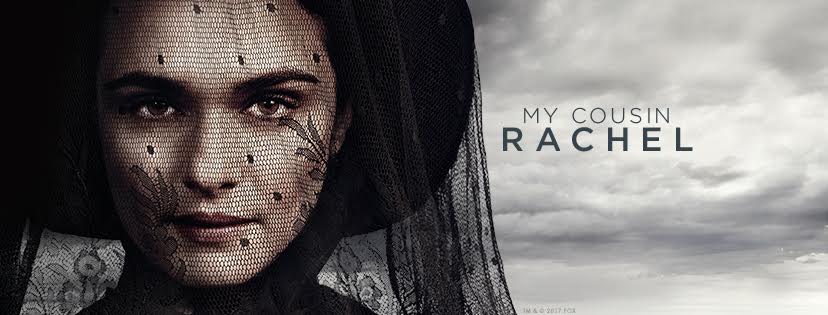“My Cousin Rachel” is a frustrating affair.
It should be good. You can see all the elements of a great movie dancing on the screen in front of you, but it never quite comes together. Performances, misdirection, three-dimensional characters — while watching the story unfold you could figuratively check almost every box on the what-makes-an-interesting-movie checklist, but you’d still end up with “My Cousin Rachel.”
So why doesn’t it work? How does a movie tangled in mystery and deception end up dragging through its 106-minute runtime like a sloth in a city marathon?
Like always, let’s chat about the highlights:
Synopsis
Based on the Daphne Du Maurier novel, “My Cousin Rachel” follows a young orphan, Philip (Sam Claflin), who is taken in and raised by his cousin Ambrose.
As Philip nears his 25th birthday, Ambrose is forced to travel to Italy for health reasons, where he begins writing Philip about Rachel (Rachel Weisz). Ambrose falls in love with Rachel and they eventually marry. But after the wedding, Ambrose’s letters change to a tone of desperation, accusing Rachel of sinister acts.
When news reaches Philip that Ambrose has died, Philip makes arrangements to confront his cousin’s widow, only to find himself as infatuated with Rachel as Ambrose was before him.
Rachel Weisz
People who end up loving “My Cousin Rachel” will point to Weisz’ performance as the primary reason for their adoration — and they’ll be right to do so.
Weisz is tasked with convincing audiences who believe Rachel is the victim of circumstance and audiences who think Rachel is orchestrating the chaos around her that they’re correct. In a way, it’s the point of the entire movie. People who care enough to discuss “My Cousin Rachel” after the scroll of the closing credits will be able to point to the same scene as evidence of Rachel’s guilt or innocence, and for that, Weisz deserves accolades.
Philip
I’m being very careful here to call this section “Philip” instead of Sam Claflin because it’s possible Claflin’s portrayal of Philip isn’t everything wrong with the character. I mean, it probably is, but maybe writer/director Roger Michell is also to blame for making Philip an unlikable man-child who arguably deserves every misfortune that comes his way. Regardless of who messed up, Philip is the primary factor keeping “My Cousin Rachel” from greatness.
When stories like “My Cousin Rachel” work, it’s because the accused character’s innocence matters. With “My Cousin Rachel,” however, there’s actually a form of justice served if Rachel is the manipulating murderer people think she is.
To be fair, on some level, Philip’s immaturity and selfish behavior kick up additional interesting questions like, is everything going wrong for Philip simply the byproduct of him refusing to take ownership for his bad behavior? But again, you would have to on some level care about the character before questions like that become compelling.
A very lazy plot device
If you’re watching “My Cousin Rachel” and you’re on the edge of your seat from the beginning, you’re not going to care about the wildly lazy plot device Michell uses to justify the climax. But if you’re even teetering on disinterested, the entire Earth will tilt with the weight of your eye roll as Rachel rides off on her horse in the closing moments of the story.
My next statement could be considered a spoiler, so if you’re avoiding those skip to the next section, but when a seemingly random accident happens in the middle of the film for almost no reason and with no consequences and in a manner that in no way affects the rest of the story, you might think to yourself, “I hope Michell didn’t just throw that in so he could manufacture some tension at the end of the movie.” Then your next thought might be, “No, that doesn’t fit with the tone of the story and also, it would just be ridiculous.”
If you’re that person and you do find yourself thinking similar thoughts when said random accident happens, I think I’m safe to say you’re going to be really disappointed with the closing scenes of “My Cousin Rachel.”
The identity crisis
In the Philip section, I blamed the character for keeping the movie from greatness, but I should’ve also mentioned he wasn’t totally responsible for the movie’s demise. In order to really discuss that, I’ll need to introduce some mild spoilers, so again if you’re avoiding those, just move on to the conclusion.
The real problem with “My Cousin Rachel” lies with Michell. In his effort to keep the story ambiguous, Michell never decided on what movie he was actually making. It’s as if he decided the movie couldn’t be a thriller because that would give too much away about Rachel, and it couldn’t be a romance because that might make Philip sympathetic.
As a result, it becomes a movie so afraid of leading the audience one way or another that it remains neutral. And in that way, “My Cousin Rachel” is like a poker game where no one ever reveals their cards, but instead, people simply gather together to admire each other’s ability to stare without expression.
Conclusion
There are so many elements that work with “My Cousin Rachel” that it would be easy to call the movie mediocre and move on. But with Mitchell’s inability to commit to a direction and with no compelling reasons to care about the protagonist, I can’t justify recommending you pay theater prices this weekend to see “My Cousin Rachel.”
In a few months when “My Cousin Rachel” hits Red Box and Netflix, absolutely watch an hour or so because Weisz’s performance is worth a look. You’ll forget what you did with that hour a few moments later, but while you have it on, I imagine you’ll agree she was a pretty convincing possible sociopath.

Recent Comments